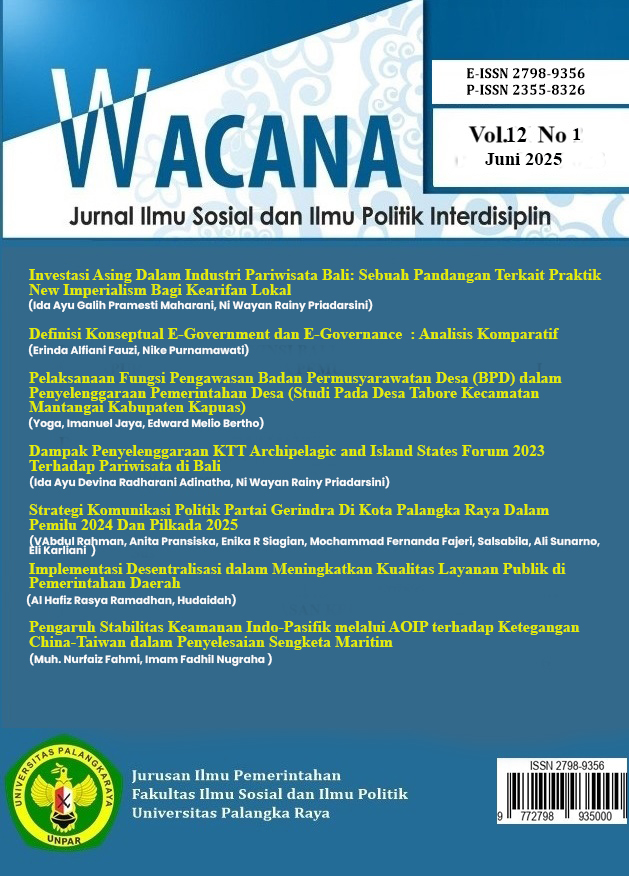Implementasi Desentralisasi dalam Meningkatkan Kualitas Layanan Publik di Pemerintahan Daerah
DOI:
https://doi.org/10.37304/wacana.v12i1.20795Keywords:
decentralization, public services, local government, governance, service qualityAbstract
This study investigates the implementation of decentralization in improving the quality of public services at the local government level. The purpose of the research is to examine how decentralization policies influence service delivery performance and to identify key factors that contribute to more effective public services. A qualitative descriptive approach was employed, utilizing interviews, documentation, and observation as the main data collection techniques. The research was conducted in selected regional government institutions that have actively implemented decentralization strategies.The findings indicate that decentralization, when properly executed, has a positive impact on public service quality. Increased local authority and autonomy enable faster decision-making, better allocation of resources, and services that are more responsive to community needs. However, the effectiveness of decentralization largely depends on institutional capacity, human resource competence, transparency, and accountability mechanisms. In some cases, challenges such as bureaucratic inefficiency and lack of coordination still hinder optimal service delivery.The study concludes that decentralization can significantly improve public services if accompanied by capacity building, institutional reform, and strong governance practices. It recommends strengthening local institutional structures and enhancing community participation to ensure that decentralization leads to more citizen-oriented services
Downloads












